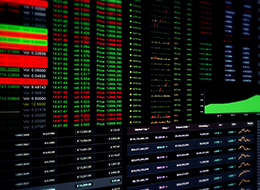
This course adds a third day to the popular Energy Statistical Analysis seminar to allow the time needed for a more in-depth discussion and explanation of many important topics. Additionally, this three-day course is designed as a hand-on workshop. Not only will you learn about practical energy statistical techniques and tools, but you will practice building statistical models in a workshop format.
Learn why companies continue to be exposed to significant energy and electricity related price risk, and how risk and value are properly quantified. Energy and electricity companies worldwide depend on accurate information about the risks and opportunities facing day to day decisions. Statistical analysis is frequently misapplied and many companies find that "a little bit of knowledge is a dangerous thing."
This comprehensive three-day program is designed to provide a solid understanding of key statistical and analytic tools used in the energy and electric power markets. Through a combination of lecture and hands-on exercises that you will complete using your own laptop, participants will learn and practice key energy applications of statistical modeling. Be armed with the tools and methods needed to properly analyze and measure data to reduce risk and increase earnings for your organization.
A laptop is required with any version of EXCEL.
DAY ONE:
The Basics of Deterministic vs. Probabilistic Thinking for Energy Applications
Fundamental Modeling Tools and Simulation
Exercise: Setting up a Monte Carlo Simulation to Evaluate Project Value and Risk
Application: Calculating Value at Risk (VaR)
Exercise: Calculating VaR Using Three Different Methods
Application: Hedging Energy Exposure
Application: Component Risk Analysis
Exercise: Customer Migration Model Estimating Migration out of Standard Offer Service
Exercise: Measuring Load Following Supply Risk
Exercise: Measuring Intermittent Renewable Supply Risk
Correlation and Regression Analysis for Maintaining the Competitive Edge
DAY TWO:
The Energy Forecasting Toolbox
Case Study: Statistical Reports that Everyone Can Understand
Case Study: Benchmarking to Industry Standards- GTS Steel vs. KCPL
Exercise: Building Regressions and Forecasting, PDF's, CDF's and Payoff Diagrams
Exercise: Calculating Hedge Ratios, Constructing an Energy Hedge and a Weather Hedge
Exercise: Using Forecasts in Monte Carlo Simulation to Calculate Risk Premium
DAY Three:
Introduction to Real Options Analysis
Application: Minimizing Price Risk through Operational Design Flexibility
Application: Real Option Value of Demand Response and the Smart Grid
Exercise: Calculating Volatility
Exercise: Simulating Prices using GBM and Mean Reversion Monte Carlo Models Â
Exercise: Valuing Combustion Turbines using Real Options
Exercise: Valuing Gas Storage using Real Options
This seminar will be held at the hotel listed below or can be conducted on-site at your facilities. The seminar will start promptly at 8:00 AM and will finish at 4:30 PM on the first and second day. On the third day, the seminar will resume at 8:00 AM and will finish at 12:00 PM. The program includes continental breakfast, lunch on the first and second day, and breakfast on the third day. Attendees also receive a professionally produced seminar manual that can serve as a valuable office reference. Dress is business casual for all seminars.
This live group seminar is eligible for 18.0 CPE credits. Be aware that state boards of accountancy have final authority on the acceptance of individual courses for CPE credit. As of January 1, 2002, sponsored learning activities are measured by program length, with one 50-minute period equal to one CPE credit. One-half CPE credit increments (equal to 25 minutes) are permitted after the first credit has been earned in a given learning activity. You may want to verify that the state board from which your participants will be receiving credit accept one-half credits.


Among those who will benefit from this seminar include energy and electric power executives; attorneys; government regulators; traders & trading support staff; marketing, sales, purchasing & risk management personnel; accountants & auditors; plant operators; engineers; and corporate planners. Types of companies that typically attend this program include energy producers and marketers; utilities; banks & financial houses; industrial companies; accounting, consulting & law firms; municipal utilities; government regulators and electric generators.
This fundamental level group live seminar has no prerequisites. No advance preparation is required before the seminar.
PGS seminars are known for their clear explanations and in-depth content. Register for a PGS class today, and join the over 10,000 energy professionals who have already attended one of PGS's proven programs.